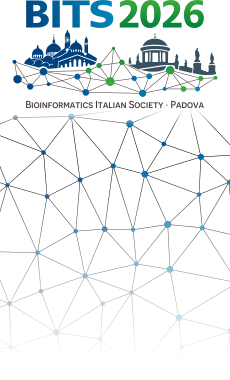CBMS-2009 Special Track on Computational Proteomics: Management and Analysis of Proteomics Data
CALL FOR PAPERS
Genomics is the study of the genome, i.e. the whole hereditary information of an organism that is encoded in the DNA (or, for some viruses, RNA). Investigation of single genes, their functions and roles is becoming common practice in today's medical and biological research. Genome-wide sequencing projects have been completed for many organisms, including Homo Sapiens.
Currently thousands of genes have been sequenced but still wait for any functional information to be assigned to them: this suggests that current comprehension of most biological and pathological processes is by far incomplete. As a consequence, new technological platforms that exploit the genome sequence information to explore gene function in a systematic way are evolving at an incredibly high pace, e.g. microarray.
Application of the microarray technology has unveiled its enormous potential as a diagnostic support to clinical management. Recent works exploited gene expression profiling of tumor samples to define sets of genes (signatures) whose expression correlates, positively or negatively, with specific clinical features, such survival and response to therapy. Other types of massive datasets currently generated in genomics and projects include: protein expression levels measured by proteomics screenings; protein-protein interaction datasets in various organisms; protein structure data; genomic sequencing of additional organisms, comparative genomics; sequence polymorphisms in human populations, mutational analysis in human cancer and in hereditary diseases.
Proteomics is a fastly developing area of biochemical investigation and regards the study of the proteins expressed in an organism or a cell. Proteomics studies include: protein identification and quantification, structural genomics, protein-to-protein interaction, post-translational modifications, and so on. In medical studies, the basic aim of proteomic analysis is the identification of specific protein patterns from cells, tissues and biological fluids related to physiological or pathological conditions (biomarker discovery). It provides a different view as compared to gene expression profiling, which does not evaluate post-transcriptional, post-translational modifications as well as protein compartimentalization and half-life changes (for instance ubiquitination and proteasome-driven degradation). All these characteristics make the protein profile much more complex but more informative compared to gene expression profiling.
Several approaches have been used to perform proteomic analysis; among them, technologies based on Mass Spectrometry (MS) have revolutionized proteomics and are heavily used to make high-throughput measurements for identifying macromolecules in a specific compound. Some recent studies based on mass spectrometry, conducted at the National Institutes of Health, USA, have identified in biological samples cluster patterns that completely segregated ovarian cancer from non-cancer. These results, characterized by a high degree of sensitivity and specificity, represent an extraordinary step forward in the early detection and diagnosis of ovarian cancer and justify a prospective population-based assessment of proteomic pattern technology as a screening tool for all stages of ovarian cancer in high-risk and general populations. Similar studies performed on different types of neoplastic diseases have confirmed the importance of identification of “molecular profiles or signatures” (either at RNA or protein level) as a powerful tool for innovative diagnostic and therapeutic approaches.
Computational Proteomics is about the computational methods, algorithms, databases, and methodologies used to manage, analyze and interpret the data produced in proteomics experiments. The broad application of proteomics in different biological and medical fields, as well as the increasing resolution and precision offered by technological platforms, make the analysis of proteomics experiments difficult and error prone without efficient algorithms and easy-to-use tools. This is especially true in Mass Spectrometry-based high-throughput proteomics, where the production of huge datasets is coupled with the need of on-the-fly data analysis.
The seamless integration of genomic, proteomics and clinical data, and the semantic interoperation between bioinformatics tools and health management systems, are first steps toward the so-called “Genomic Medicine”, i.e. the combined use of genomics, proteomics, and clinical data to improve healthcare. Future Electronic Patient Records should allow the integration of genomic and proteomic data, while bioinformatics tools and databases used for genomics and proteomics studies should be able to furnish input to clinical practice, enabling the so called “from-bench-to-bed” paradigm.
This Workshop is designed to bring together computer scientists, biologists and clinicians for exploring the current state-of-the-art research taking place in all aspects of computational proteomics, from basic science to clinical practice. The workshop intends to provide a forum for the presentation of original research, valuable software tools (basic algorithms, modelling, analysis, and visualization tools, databases), and clinical fallouts, on topics of importance to computational genomics and proteomics.
TOPICS OF INTEREST
The topics of interest will include but will be not limited to:
Data management and analysis in Computational Proteomics
o Computational methods for microarray
o Computational methods for mass spectrometry
o Florescence-based methods and related image processing techniques
o Peptide/protein identification
o Protein structure prediction
o Applications of Data Mining, Neural Networks, Soft Computing for proteomics
o Software environments for proteomics workflows
o Exploration and visualization of proteomic data
o Data models and integration for proteomics
o Querying and retrieval of proteomics data
o Knowledge management, text mining and ontologies for proteomics
o System biology ( protein-protein interactions, signalling networks)
o Parallel and Grid-based methods for proteomics
o Service Oriented approaches for Life Sciences applications
o Standards in proteomics
Applications of Genomics and Proteomics in Clinical Practice
o Biomarker discovery (identification of molecular targets for early detection, prognosis and treatment of diseases)
o Technologies and data models for phenotype, genotype and proteotype data
o Integration and analysis of genomics, proteomic, and clinical data for medical applications
o Application of proteomics methods in clinical practice
o Advanced Electronic Patient Records
o Data quality and provenance
o Medical Images




